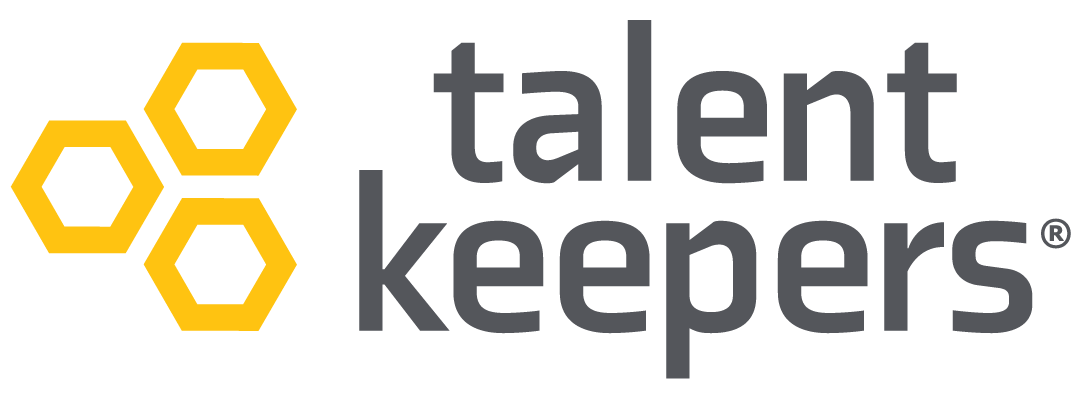An employee exit interview is a final interview with an employee departing your organization. They’re an essential element of an employee engagement plan, helping leadership identify why employees leave businesses. With a strong exit interview strategy, you can promote a positive workplace culture and improve business outcomes.
What is the Purpose of an Exit Interview?
An exit interview aims to help your organization gain valuable insights into why employees choose to move on from your company.
Employee engagement surveys contribute to a better understanding of the employee experience. While the exit interview is conducted with your departing employees, other employee engagement surveys and interviews are conducted at varying times during an employee’s tenure with you.
During an exit interview, a departing employee can share their reasons for leaving. It’s a great opportunity to get feedback on the work environment at your company—and the challenges that your employees might be facing. Exit interviews can identify areas that need improvement so that you can incorporate them into your employee engagement plans. You can uncover patterns or trends contributing to employee turnover, which can then be used to implement changes to retain your top talent and improve employee satisfaction. You can also use the results to inform your recruitment process is better.
What Are the Benefits of Conducting Exit Interviews?
Among the benefits of exit interviews are their potential to improve the employee experience and leadership effectiveness at your organization. With a better understanding of why employees choose to leave, you can take action to reduce turnover, strengthen leadership, and develop a positive workplace culture.
- Identify areas for improvement. Exit interviews offer departing employees the opportunity to give your organization honest feedback. If they experience issues with their role, team, or managers, other employees might have similar challenges that must be addressed.
- Understand employee perspectives. The feedback from an exit interview helps leadership better understand the employee experience from the employee’s perspective. Leadership may need to be removed from some aspects of the employee experience. An exit interview is a unique opportunity to identify and remove those blind spots reconnecting leaders and employees.
- Reduce employee turnover. You can reduce employees’ turnover rate when you can identify what drives them to leave and address it in your employee engagement plans. Lowering employee turnover will help increase your organization’s overall productivity.
- Improve employee morale and engagement. Conducting exit interviews and taking informed action based on the feedback you receive improves employee morale and engagement. It demonstrates that your company values the feedback and is committed to improving the employee experience.
- Attract and retain top talent. When an organization has proven commitment to organizational progress and a positive employee experience, it goes a long way toward attracting and retaining top talent. It can be a deciding factor in choosing to work for your company over a competitor.
- Track employee trends over time. When you track exit interview feedback over time, you can quickly identify patterns and trends within your organization. This is a great way to pinpoint areas where your company needs improvements and where you see progress in your employee engagement efforts.
- Improve employee satisfaction. Taking action based on exit interview feedback can directly improve employee satisfaction. When your employees are more satisfied with their roles and work, you have a more engaged and productive workforce—meaning better outcomes for the entire company.
- Get feedback on leadership style. Exit interviews are a valuable tool for assessing leadership style. The feedback can be used to recognize areas where your leaders are successful and need improvement.
- Develop a leadership growth plan. Use the feedback from exit interviews to develop a growth plan for leaders and leadership roles. This will help your leaders be more effective (and successful) and show your employees that leadership is also committed to engaging with their role, work, and the organization.
- Reduce your organization’s legal risk. If your employees are experiencing harmful behaviors at work, such as harassment or discrimination, it can put your company at legal risk. Departing employees may be more likely to call this to your attention so that you can address the issue immediately.
- Protect your organization’s reputation. Addressing the concerns raised by departing employees contributes to your company’s reputation in a positive way. Today’s prospective employees (and consumers) highly value companies that proactively make their organization a safe and positive workplace.
- Cost-effective engagement tool. Exit interviews are a cost-effective way to collect honest feedback from your departing employees. It can then easily be used to improve the employee experience (and employee retention) at your workplace.
How to Conduct a Successful Exit Interview
Conducting a successful exit interview requires planning and preparation. Understanding why companies do exit interviews is important, but you must organize them thoughtfully to maximize their benefits. When you don’t prepare your interviews well, you’ll miss out on valuable opportunities to improve workplace culture, boost employee satisfaction, and increase employee engagement.
First, decide on your interview format: a survey questionnaire, an in-person interview, or a combination of the two. Some organizations offer employees a choice of format, as departing employees are most likely to give honest, constructive feedback in the interview format of their choice.
A survey questionnaire can feel less intimidating for some employees, and they will be more likely to respond truthfully. However, the design of some surveys may not leave room for the employee to elaborate with the helpful context needed for your company to address any issues raised in the feedback.
In-person interviews are a better way to get that helpful context when needed. Some departing employees may welcome the chance to have an open dialogue with leadership about their reasons for moving on (and find closure in the process). And some employees might even leave on a high note, keeping the option to return open in their minds. However, some employees may be uncomfortable with this format or feel pressure to withhold negative feedback even if it will help the company progress positively.
Next, decide who will conduct the interview. In most cases, companies will have a representative from their HR department perform (or administer, in the case of the survey questionnaire) the interview. Having an outside consultant conduct an in-person exit interview is also common. This can help reduce the reluctance of those employees who feel uncomfortable giving honest feedback to their manager in the in-person format.
Finally, prepare the exit interview questions. It’s best to have these ready in advance, even if you are conducting an in-person interview, to help structure the discussion and have a productive dialog.
Ask open-ended questions to prompt discussion and encourage your employee to share context with their answers.
- What first made you consider leaving the company?
- What could we have done to retain you?
- How was your relationship with your manager?
- Did you feel like a valuable member of the team?
- Did your job role live up to your expectations?
Avoid “leading questions” during an exit interview. These questions influence the employee’s answer by how they are phrased, impeding the interview outcome.
- Are you leaving because of a particular manager?
- Is there something you don’t like about the organizational culture?
- Were you unhappy with the lack of career advancement opportunities?
Frequently Asked Questions
From this guide, you should understand an exit interview, how to conduct it, and its benefits. Here are some additional questions and answers for employers on this topic.
Are employee exit interviews mandatory?
No, conducting exit interviews is not mandatory. However, they are an accurate and cost-effective tool for any organization to boost employee engagement and retention. They also promote good outcomes for the overall business.
What are employee engagement interviews used for?
In addition to increasing employee engagement and retention, employee engagement interviews can improve leadership effectiveness, gauge organizational progress, and increase employee satisfaction.
What are the drawbacks of exit interviews?
Some employees may be uncomfortable giving honest feedback if it isn’t positive. This is especially the case if they want to leave the door open to return at some point. If not correctly conducted, the exit interview may not serve the organization’s goals in the employee engagement process.







